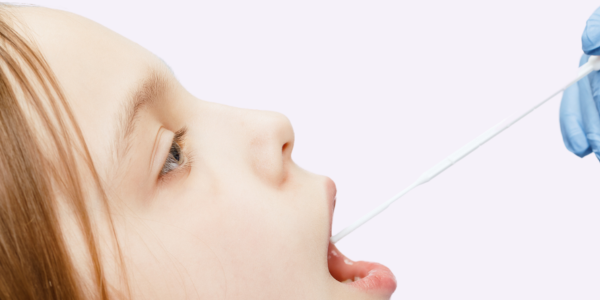Information for Healthcare Professionals
Cellmark participated in the development of the original Dept. of Health's voluntary Code of Practice on Genetic Testing, launched in 2001, and abides by its replacement the Human Genetics Commission's 'Common Framework of Principles'.
Relationship DNA Testing
Established in 1987, Cellmark pioneered the introduction of DNA analysis for paternity testing and over the years has been recommended by healthcare professionals whose patients are looking into DNA testing.
Process Overview
DNA testing is a complex scientific process which can positively identify relationships between people. Most commonly used to establish if a man is the true biological father of a child but it also used in the analysis of more complex relationships.
Relationship testing is undertaken using DNA analysis called Short Tandem Repeat (STR) profiling. A minimum of 22 STR tests are used to analyse a claimed relationship. In paternity cases when a mother, child and father are tested, Cellmark will either exclude the man with 100% certainty, or provide a probability of paternity in excess of 99.9999%.
The use of the amplification technology Polymerase Chain Reaction (PCR) means that small cellular samples can be used, such as mouth swabs (buccal scrapes).
Any reputable DNA testing company, such as Cellmark, will be accredited by the Ministry of Justice as a body that may carry out parentage tests as directed by the civil courts in England and Wales under section 20 of the Family Law Reform Act 1969. This means that they abide by the terms of the Human Tissue Act, adhere to the Human Genetics Commission's "Common Framework of Principles", that their labs have the relevant ISO accreditation (ISO17025) and they market their services in an ethical manner.
Ethics and DNA Testing
The provision of DNA paternity testing direct to the public, using test kits sent off for analysis, raises the possibility of samples being tested without the individual’s consent. As a sample from the mother is no longer required to obtain meaningful results (although we would still recommend they are sampled) the possibility of testing without the knowledge or consent of the mother has increased.
The Human Genetic's Commission's "Common Framework of Principles" and the BMA's Ethics Department have provided detailed guidance in these matters.Ethically, health professionals should only agree to provide assistance where the testing is in the best interests of the child. The BMA believes that, ethically, ‘motherless’ paternity testing should only go ahead where the mother, and if sufficiently mature, the child, consent.
Advising DNA Testing
Paternity testing is not available on the NHS, nor is it considered a ‘healthcare’ matter, subsequently doctors may feel this is a subject not suited to the remit of their practice as a doctor, GP or otherwise. However, there is an implicit responsibility to provide those seeking a test with correct and appropriate information.
Is testing in the best interests of the children involved and does everyone consent to testing taking place? Consent is required before a sample is taken for paternity testing. People with parental responsibility must give consent on behalf of children or young people, but when they are capable of understanding the issues, the views of young people should be taken into account when deciding if a paternity test would be in their best interest.
Cellmark offers a convenient sampling service which allows the samples to be taken by an independent and suitably trained person. The sampler should not be related to the sample giver, nor have any financial or personal interest in the outcome of the paternity test.
Cellmark provides all the relevant documentation and instructions to simplify the process for your patients. If you have any concerns please phone, or get your patients to phone, our Customer Services team free on 0800 036 2522.
Sample Collectors
We are seeking to recruit sample collectors for our Court Admissable DNA paternity testing service. These tests require an independent person to witness the sample and that person should be medically trained, this is something that your practice nurses are qualified to do.
A sample collector is required to take the DNA samples – using our dedicated kits, verify the identification of each person to be tested and complete our chain of custody paperwork – 2 people’s samples and paperwork should take no more than 10 minutes to complete.
A payment form will be enclosed with the sampling kit(s), this should be completed and returned with the samples. A BACS payment will then be made to the bank identified. We also undertake work for the Child Support Agency and that also qualifies for direct payments from us.
If you would like to be registered as a Cellmark sample collector please contact our customer services team on 0800 036 2522



